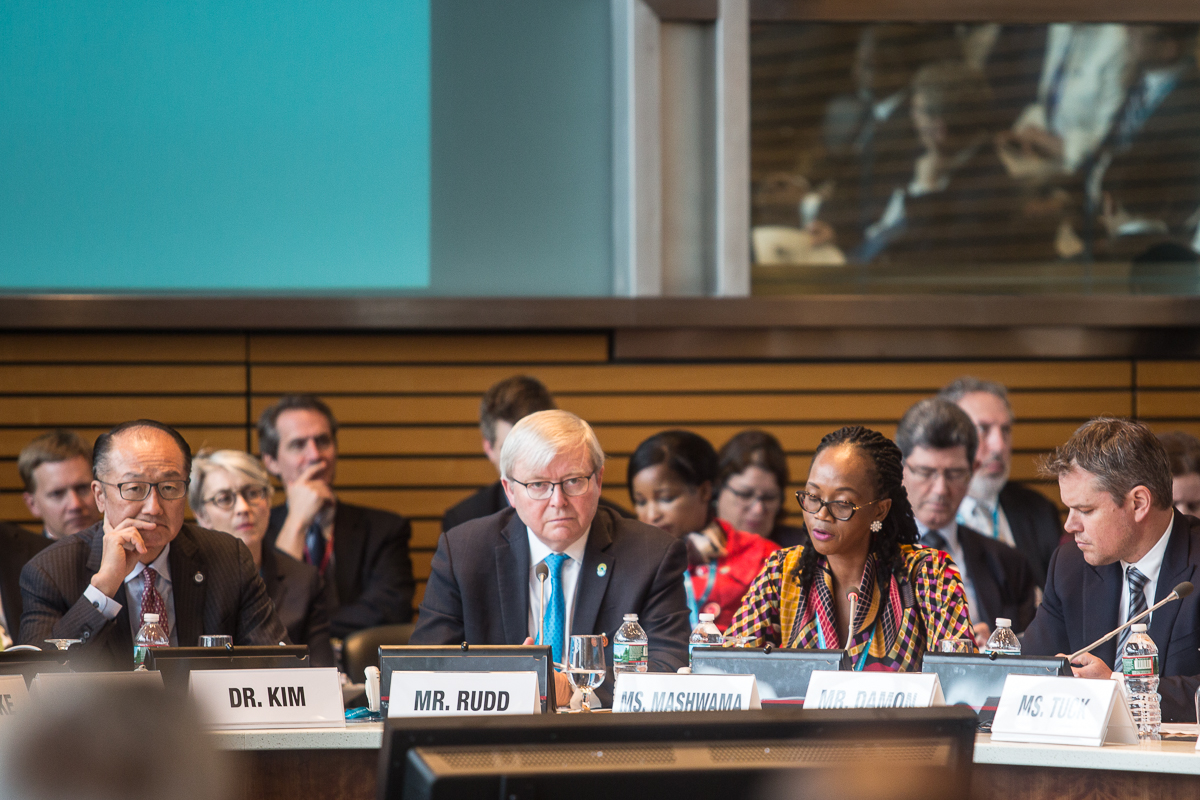The critical decisions facing SWA, the Sanitation and Water for All partnership.
Published on: 14/07/2017

A Hollywood A-lister played the part of a World Bank technocrat in Washington DC in April. The question is why, and what comes next for the Sanitation and Water for All partnership?
Back in April I had the privilege of a ringside seat as a favourite star, Matt Damon, played the part of a World Bank technocrat to a group of Finance Ministers. Professional that he is, he did a great job – I even found myself nodding off by the end of his short paper! The question is why, and more importantly to what end? Why is it important that a Hollywood star (and WASH NGO director*) accompanied by the head of the World Bank and UN Deputy Secretary General kicked off a technical session of WASH Sector and Finance ministers.
I ask this, because it goes to the heart of the critical decisions facing Sanitation and Water for All (SWA) a partnership which IRC continues to support wholeheartedly despite the real challenges that it faces. Key among these is how having successfully attracted more than 170 members (including more than 50 countries) and gained the regular attention of a roomful of Ministers of Finance, do we leverage this into country level action. Action that gets more political priority and more money into water, sanitation and hygiene (WASH): to build strong national systems to deliver WASH services and achieve the Sustainable Development Goals.
At the moment, it sometimes seems as if SWA exists solely to deliver its high level meetings: bi-annual get-togethers of WASH Sector and Finance Ministers. During these, the WASH Sector Ministers talk to each other and assembled experts, share stories of success and failure, and express their inability to get sufficient money! Subsequently, a favoured few are wheeled into the presence of their respective Finance Ministers to make their case. And let's be clear, this is a good thing. WASH desperately needs the attention of Finance Ministers (not to mention Presidents, first ladies and other assorted leaders).
That said, having created a space for WASH to talk to Finance, the SWA partnership is struggling with what happens next, and that's a pity. Talking to people who were there at SWA's inception (as the Global Framework for Action) the idea of getting WASH Ministers to sit down for a regular meeting with Finance Ministers seemed an impossible dream. But now that the remarkable has become mundane, we need to move forward.
From IRC's perspective we'd like to see at least two things happen with the partnership:
SWA has done a good job of mobilising global attention to WASH. And it helps that people with the pulling power of Matt Damon, Jim Kim, Amina Mohammed and Kevin Rudd are prepared to lend their weight to this. SWA has also done a great job of creating a broadly based partnership of Governments, donor agencies; NGOs, the private sector, and, research and learning organisations. It now needs to capitalise on that attention and on the breadth and depth of its partnership. Driving systems change and building strong WASH systems requires the broad range of influence and skills that a partnership like SWA can bring. However, to do so it must become much more results focused, where it matters: on the ground in its member countries.
* IRC, Water.org, Simavi and DGIS jointly prepared a position paper on WASH financing that was launched during the High Level Meetings
At IRC we have strong opinions and we value honest and frank discussion, so you won't be surprised to hear that not all the opinions on this site represent our official policy.